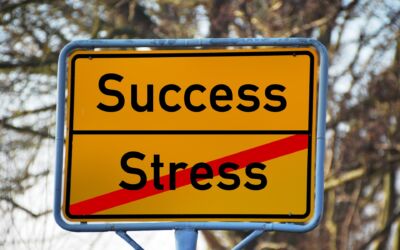Most people are at least generally aware that the food we eat is at least loosely related to our mental health. Food and mental health is a topic that we’ve also discussed more than once, including information regarding consuming fruit and concerns regarding obesity and mental health. It seems that, “We are what we eat” is more than just a pithy saying.
Based on a new study, we may need to revise that old catchy statement to something along the lines of, “We are what we eat when we eat it.” That’s because the researchers in the study may have uncovered some interesting new information regarding how our bodies work in relation to when we consume food and how that all plays into the growing food and mental health focus of study.
Our team of Orange County mental health professionals at SoCal Empowered is constantly looking for ways to help people avoid serious mental health problems before they arise. Lifestyle is obviously a key to that, but not all of us can necessarily control our lifestyles from the start of our days until the end. Night workers are one example, and as we’ve also discussed, these people can encounter their own set of mental health challenges. The study we’re about to discuss delves into a specific aspect of people who tend to be up and active at night.
About the Study
The study was done in Boston, and the sample size was small, but that’s because it was also quite involved. Researchers enrolled 19 people – 12 men and 7 women – in the study that basically discombobulated some participants’ body clocks to have them thinking it was nighttime even during the day. This was done by keeping them in dimly lit environments and simulating a 28-hour day for four days. Ultimately, this shift adjusted the body clocks of those participants by 12 hours, making day seem like night. The control group was kept on a 24-hour daily cycle.
In addition to changing body clocks, the group that was kept on the daytime cycle was fed only during the day, which is consistent with how most people eat. Those on the 28-hour schedule, however, were fed both during the day and at night, which was more consistent with how people who work night shifts tend to eat.
As the participants went through this cycle, the researchers regularly measured their levels of depression and anxiety-like moods. What they found was a difference between the groups that was more stark than many would guess:
- Those on the daytime-nighttime feeding schedule experienced increased depression-like moods by a factor of 26 percent compared to the baseline.
- Those on the daytime-nighttime feeding schedule also experienced an increase in anxiety-like moods by a factor of 16 percent.
- Those kept on the daytime only feeding schedule did not experience any increase in moods relating to depression or anxiety.
This information suggests that when we eat may be related to our mental health just as is the case with what we eat and how much we eat.
Food and Mental Health Aside, Are We Nocturnal?
One of the first questions that will pop into the minds of many people when seeing this information regards whether or not humans are even nocturnal. Surprisingly, there is some debate ongoing in that regard. The majority of experts believe that we are basically diurnal, as that’s how we have evolved over time, but this study may challenge that belief in some respects. Diurnal means that we are able to function reasonably well both during the day and at night.
How Could This Study Affect Everyday Life?
As we’ve discussed and has many others have mentioned, people who work at night already face a much higher risk of depression and anxiety than those who do not. Not to mention, there are others who could wind up at least temporarily eating on a very strange schedule relative to what their bodies are used to, at least temporarily.
These people include those suffering from jet lag, those who travel across multiple time zones often and those who may already be suffering from circadian rhythm disorders. These are disorders are also known as sleep-wake disorders, whereby the body clock is not really able to track and calibrate itself accurately.
The bottom line is that people in these positions may face greater risks of mental health challenges, particularly those who may already be vulnerable to problems. Food and mental health difficulties may only add to those levels of vulnerability. As it is, there is already a growing interest in not only the study of food and mental health, but also of how the timing of our eating can affect our physical health.
Those interested in reading the abstract of the study can find it here, in the Proceedings of the National Academy of Sciences of the United States of America.
How SoCal Empowered Can Help
How do food and mental health interact? Does food affect mental health, or is it the opposite? There really is no ultimate answer, but what we do know is that our diet, our lifestyles and our overall eating habits do contribute to our mental states and our mental health statuses somehow.
What that means with regards to how we can help you is that these are all things that we look at and analyze – among countless other factors – when you work with us to get a handle on your mental health challenges. We leave no stone unturned and we don’t stop until we’ve identified a pathway forward that can help you.
If you or someone you love is suffering from a mental health challenge in Orange County or anywhere else, you need to feel free to contact us at any time. We’ll help you find the right resource for your needs.




